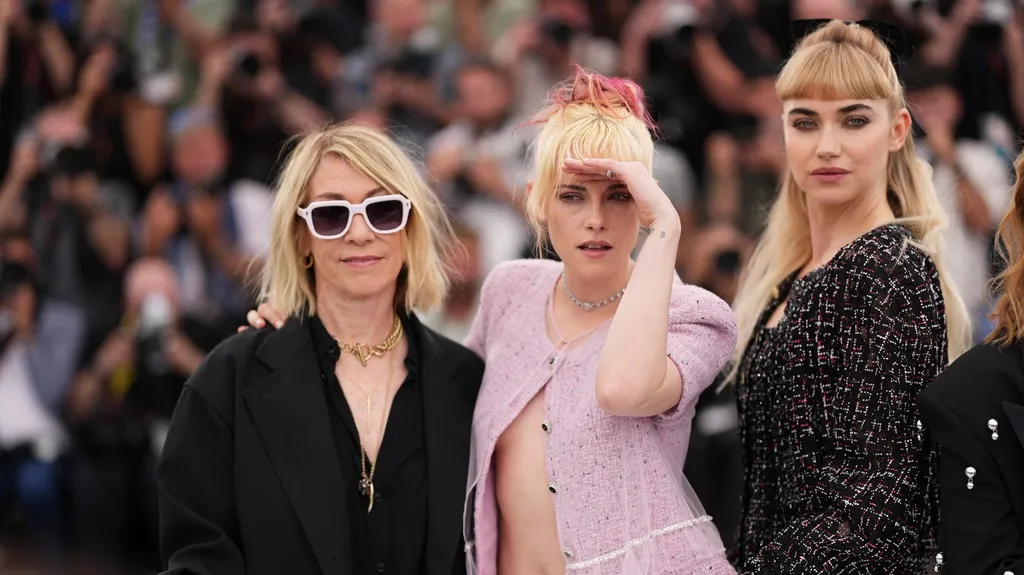January 31, 2011
Maui Travelogue
Kilian Melloy READ TIME: 5 MIN.
There's no cure for winter--just as there is no cure for the common cold--but a January trip to Maui is like a dose of vitamin C and echinacea all rolled into one big bright bolus of sunshine. For the GLBT traveler, Maui offers only a few specialty sites and services, but they are well worth looking into. After all, you wouldn't want to travel to the most remote place on the planet and miss out.
Maui Sunseeker
Billed as a gay "resort," the 17-room Maui Sunseeker is a seaside hotel with a clothing optional roof deck--though to access the roof, which offers a hot tub, a communal table, a computer with free Internet access, and an on-site massage therapist--you need to be 18 years of age or older.
The day before my husband and I arrived, Maui was lashed with the most brutal rains in a generation--seven inches in one day, a measurement that might excite appreciative glee in other contexts, but which, when applied to the weather, speaks of roads washed out and flooded ground floor rooms, both of which were a problem for the Maui Sunseeker.
The efficient, friendly staff were deep into crisis management when we called to ask for directions, but the young man at the desk--a New Jersey transplant who has been on the island for five years and absorbed its aloha spirit--proved unhurried, unharried, and kind. A few minutes after we'd ended our brief phone conversation he thought to call us back and tell us which route would get us there with a minimum of inconvenience due to road closures in the wake of the storm. Such attentiveness characterized all our interactions with the staff, and our fellow guests--whom we met while lounging in the rooftop hot tub, with Orion and a million other stars clear and bright overhead--were equally sweet natured and interesting.
Makena Beach
My husband and I consider the "little beach" at Makena State Park near Kihei to be our home away from home while on Maui. The little beach is praised as a clothing optional place to play in the surf, soak up the sun, and make new friends; though known in some circles as a "gay beach," the little beach is actually welcoming to all.
Makena Beach is sort of like a family: returnees are likely to see familiar faces as fans of the locale's golden sands and gorgeous teal waters come back years after year. Little beach is also a hit with the locals, many of whom congregate on Sundays for a drum circle. The drumming starts in mid-afternoon and gets more energetic and enthusiastic as the sun sinks sea-ward. With more and more people arriving in the hours just prior to dusk, the beach becomes a mob scene--albeit a friendly, peaceable mob.
Like any family, however, devotees of Makena's little beach also has its share of... let's call them "characters." Raconteurs, nomads, and sketchy characters can also be found, and while we have never had any trouble ourselves, we have also been smart about not leaving our belongings unattended, especially on Sunday afternoons and evenings, when the little beach is transformed into a sort of tribal rave complete with drum circle and fire dancing. We have, however, heard tell of valuables going missing, so exercise a modicum of care.
Also take note of the fact that to access little beach--which is separated from Makena's "big beach" by a lava spit--it's necessary to do a little climbing. The climb is not arduous for anyone in reasonable physical shape (unless, as sometimes happens, the sand is washed out at the big beach's far end: in that case, it's a much more difficult transition over bare lava rock), but hauling lots of extra gear can be cumbersome... not that it stops the young men with the drum sets and the digiridoos from arriving fully equipped and accessorized!
The climb also means that you may want to bring a flashlight if you plan to stay for the full party experience. Though the park officially closes at 8:00 p.m., night falls early--dusk is about 6:00 p.m.--so well before the official end time, it's going to be pitch black.
Gian Don's
Evidently, the closest thing to a gay bar on Maui is Gian Don's in Kihei--at least on Wednesdays and Saturdays. Us old married folk don't go to bars much... unless we're talking about our friends, whom I'll call Glen and Dennis. Among other adventures, Glen and Dennis headed off to Gian Don's on a Saturday night, but from what we heard they found the real action to be online.
The Feast at Lele
Though not GLBT-specific, The Feast at Lele in Lahaina is too much fun to overlook. This luau offers gorgeous, graceful dance presentations and food from four Polynesian cultures: Hawai'i, New Zealand, Tahiti, and Samoa. There's also plenty to drink. The luau is pricey--
$110--and some of the online reviews are less than kind. (Prepare to taste exotic fare like taro, poi, and ferns over the meal's five courses--food that some seem to find "inedible".) Whether we were blessed by Madame Pele and the other Hawaiian gods or just blessed with good company, our experience was positive all around.
Pacific Whale Foundation
Hawaii's first--and arguably one of its most important--nonprofits is the Pacific Whale Foundation, which launches excursions from two locations: downtown Lahaina and just outside of Kihei. The Foundation exists, as guides on its snorkel trips and whale watches will tell you, to address a trifecta of needs related to cetacean life: research, education, and conservation. The Foundation takes all of those things seriously, providing at-sea field trips for local school kids, appealing to passengers on its boating excursions to share any good photos of whales (researchers can use the unique markings on individual animals to track the population), and serving drinks in cups that look like plastic, but are made of corn and compost in water. (No kidding.)
We did both the snorkel trip and the whale watch. Since we were visiting in January, which is whale season, we saw plenty of humpback whales on the snorkeling trip to nearby Molokini (a sunken island: only the remnants of its long extinct cinder cone rise above the water) and farther-afield Lahaina (a neighboring island, also part of Maui County). Westerly winds had stirred up the waters--normally much clearer--so visibility was not good, but the number of whales we spotted breaching, flapping fins and tales, and spouting, more than made up for it, as did the ship-board food and drinks.
The whale watch was even more spectacular: at one point the craft we were on, the Ocean Explorer, was surrounded by about two dozen whales, some of them males jockeying for the attentions of a female (who was escorting her calf; the pair even cozied up to the boat at one point, affording passengers spectacular views). Almost as a bonus, a pod of spinner dolphins swam alongside the Ocean Explorer for a time, racing right next to the boat and leaping--and, yes, spinning--out of the water. (Full disclosure: my husband and I are members of the Foundation. Memberships cost $50 and include discounts and a free excursion, so it only made sense to join up.)
The famous song notwithstanding, the only thing we find to be "blue" about Hawaii--aside from a strong drink by that name--is having to leave. Aloha Oe, Maui, and mahalo--thank you!
Kilian Melloy serves as EDGE Media Network's Associate Arts Editor and Staff Contributor. His professional memberships include the National Lesbian & Gay Journalists Association, the Boston Online Film Critics Association, The Gay and Lesbian Entertainment Critics Association, and the Boston Theater Critics Association's Elliot Norton Awards Committee.



